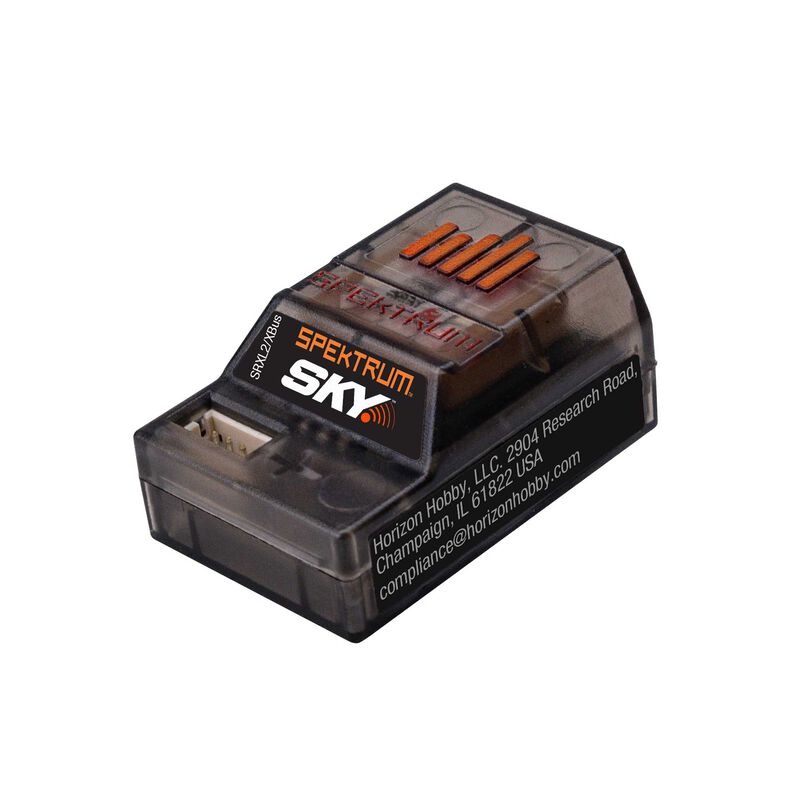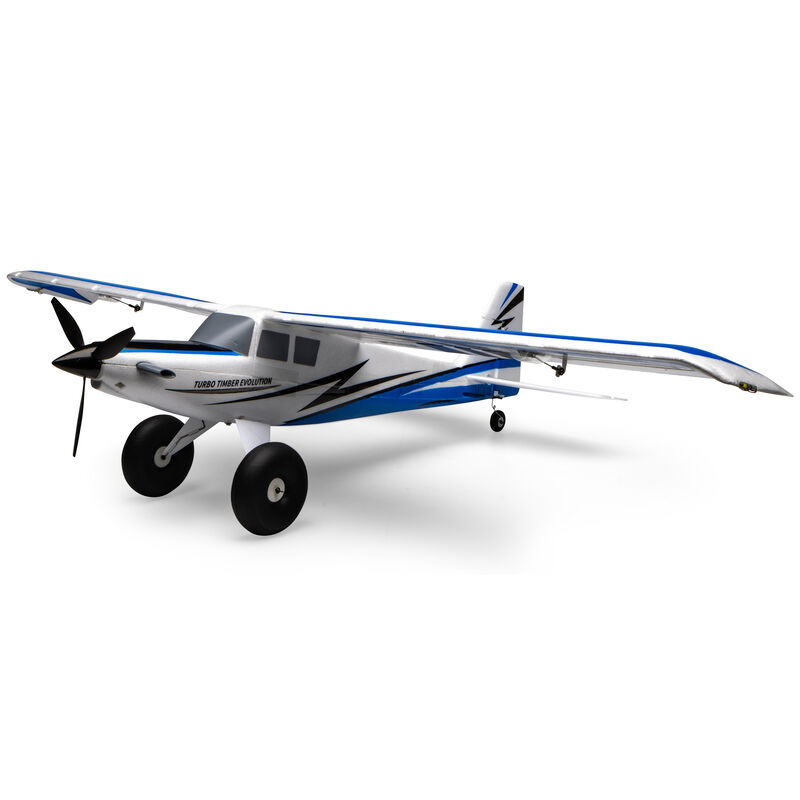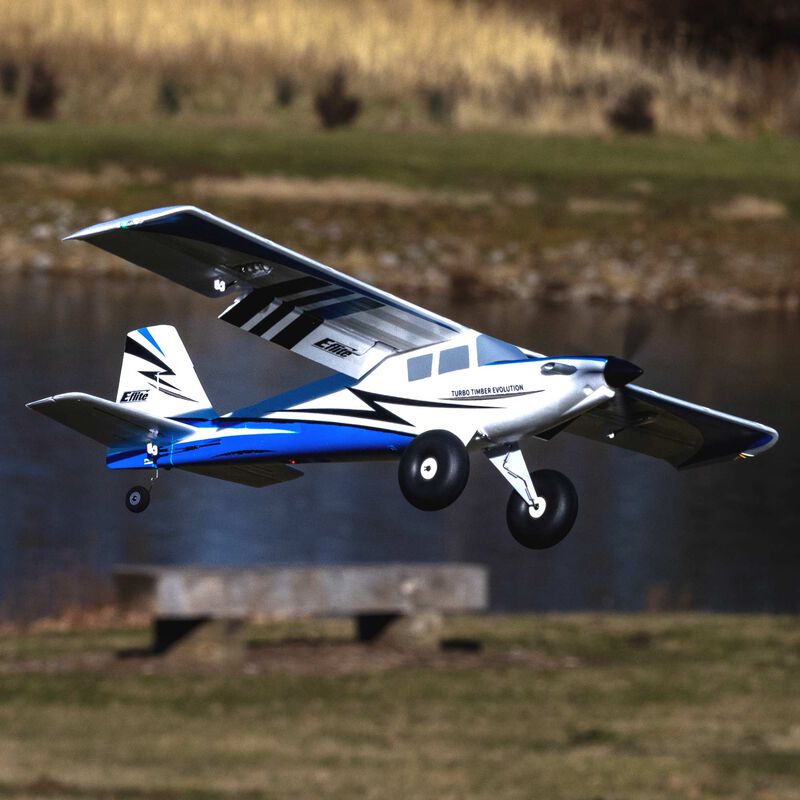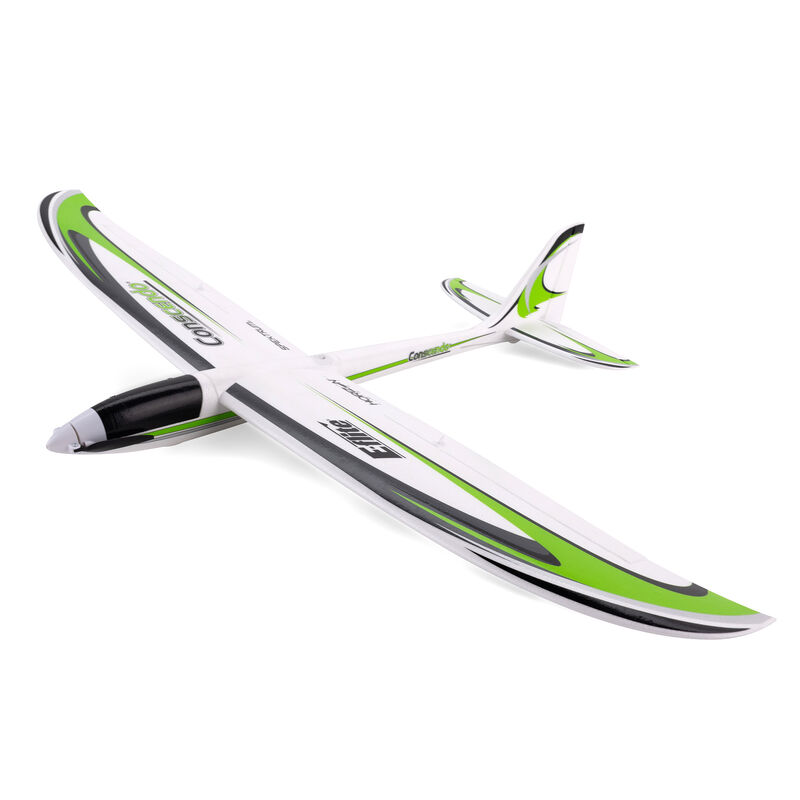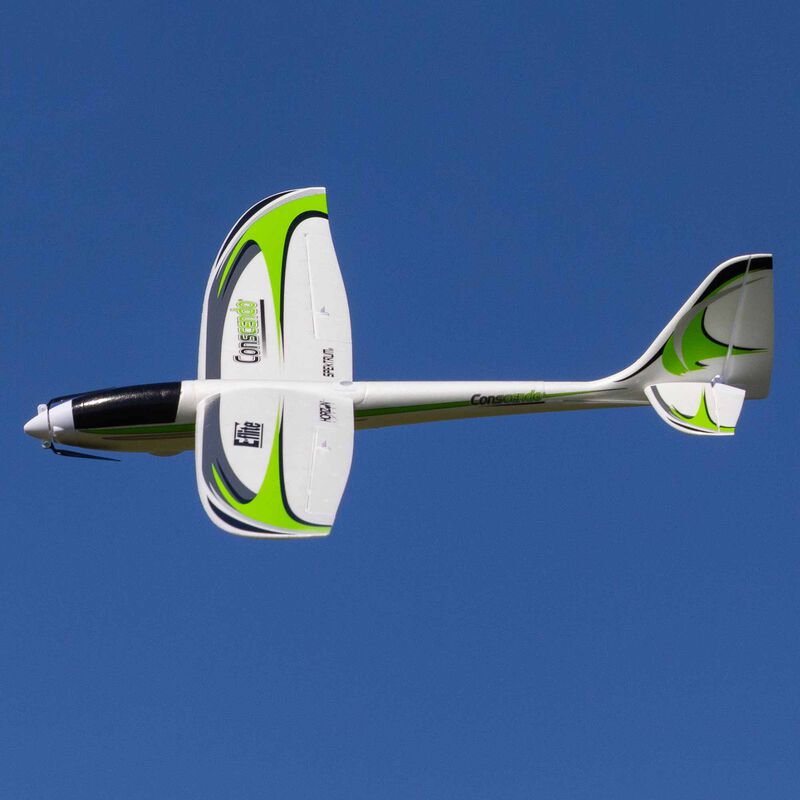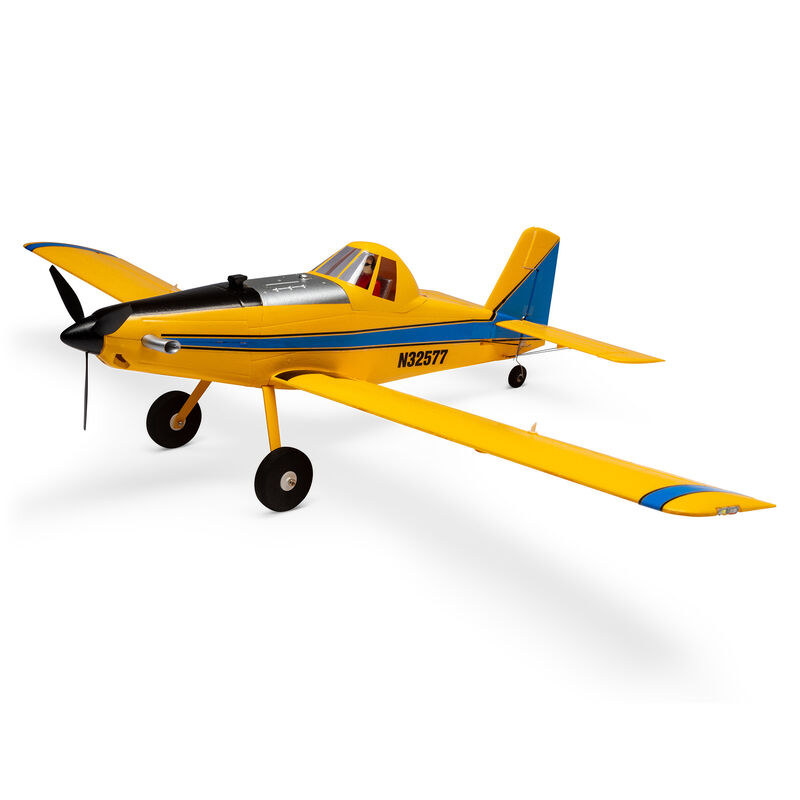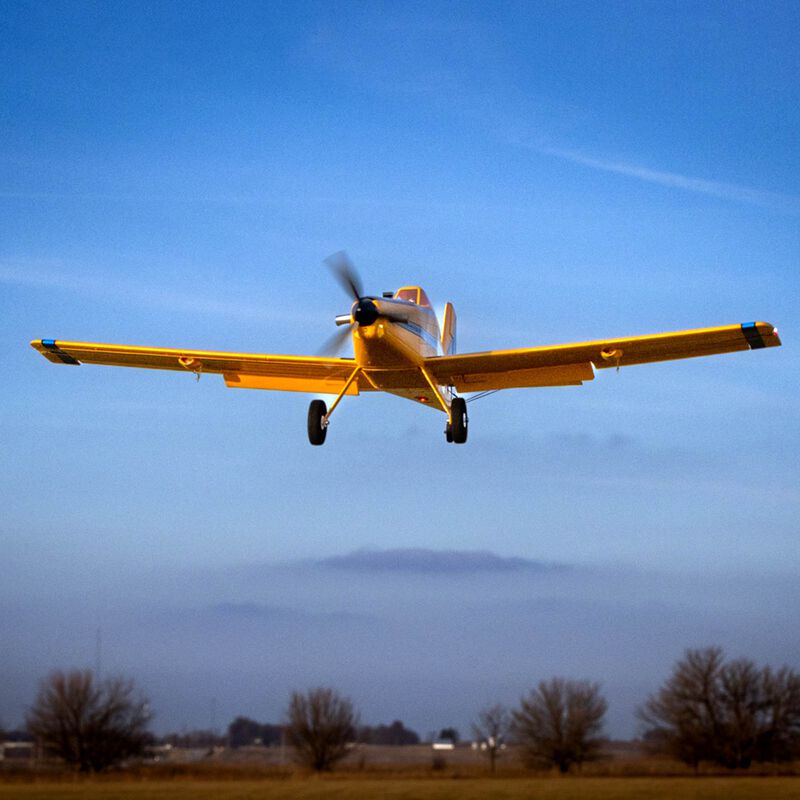Posted: 1/12/21
The FAA Remote Identification ruling is now finalized. What does it mean for the RC hobby?
Ten months after the Notice of Proposed Rulemaking and over 53,000 comments from the public, the FAA delivered a final rule on remote identification (RID) for unmanned aircraft on December 28, 2020. The good news is that many of the public's comments were considered by the FAA and the final ruling is more favorable to the RC hobby than the original proposal. It's also vital to understand if you are flying inside an FAA-recognized identification area or flying a model under .55 pounds, you are exempt from having to transmit RID. While these rules do not affect hobbyists and manufacturers for some time, we wanted to help you better understand what these rules mean for our hobby and how we are making strides to make this transition as easy as possible for our customers.
Simply put, this rule requires most unmanned aircraft (RC airplanes, helicopters, and drones) in US airspace to have RID capability of some kind. RID provides information about the aircraft in flight, such as location, altitude, and unique identity, and the location of the controller or take-off location. It allows authorized public safety organizations the ability to identify the aircraft owner as needed.
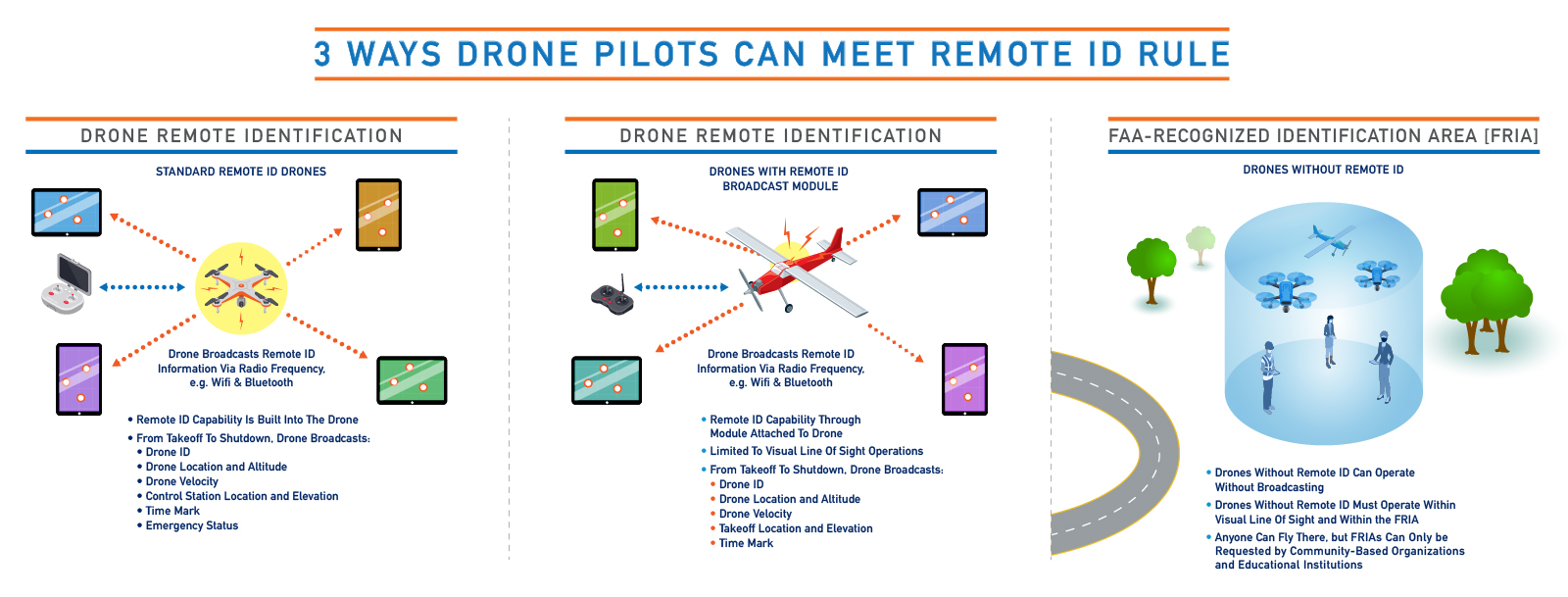
How can you comply when the rule officially goes into effect?
There are three ways pilots can meet the RID requirements:
- Operate a standard RID unmanned aircraft. This broadcasts identification and location information about the aircraft itself and the control station. This type of aircraft is produced with built-in RID broadcast capability following the RID requirements.
- Operate an unmanned aircraft with a RID broadcast module. This type of compliance requires a module that broadcasts identification and location about the aircraft and its take-off location following the RID requirements. This can be added to an aircraft to retrofit it with RID capability. Complying this way requires the aircraft's operation within the pilot's line-of-sight at all times during the flight.
- Operate without RID. If you choose not to operate with either a broadcast module or do not have an aircraft with standard RID built-in, you can only fly at what the FAA calls “FAA-recognized identification areas” or FRIAs. Community-based organizations or educational institutions sponsor these areas. Nearly all current AMA model flying fields/clubs will become FRIAs. Here, RC aircraft can operate without broadcasting RID message elements.
When do I need to start complying?
As an operator, you will need to begin complying after March 16th, 2024.
What is Horizon Hobby doing about RID?
It is now easy for pilots of all skill levels and aircraft to become compliant with the latest unmanned aircraft rulings by the Federal Aviation Administration (FAA). Add the Spektrum™ Sky™ Module to any aircraft, register on the FAA website, and you are instantly ready to go.
Horizon Hobby is committed to providing an easy solution to Remote ID (RID) for our customers, both new and old. Additionally, Sky™ features GPS for pinpoint accuracy in the sky. The Sky™ module is designed to make it easy to fly in compliance with the latest Remote ID mandates.
One way to think about Sky™ and Remote ID is that it’s simply a digital license plate for the aircraft. It provides required information about the aircraft’s location and identification, which, if necessary, can be used by air traffic control or law enforcement to determine who and what is flying.
Sky™ is compatible with aircraft that require RID and airplanes of almost any size and allows your aircraft to be tracked in real-time. Sky™ allows you to be in compliance with the latest Remote ID mandates by offering a Direct and Broadcast RID solution via Bluetooth.
Do I need to purchase a Sky™ module for each RC aircraft that I own?
No, you can easily move a Sky™ module from one aircraft to another. Additionally, you don’t need a remote ID module in your aircraft if you are flying in a FRIA or flying a model that weighs less than 250g.
Is this a better outcome compared to what the FAA proposed initially?
Yes! Many of the comments made by the public and manufacturers regarding the NPRM have been addressed in the final ruling. Like most discussions, there were a lot of compromises as well.
Some of the key differences in the NPRM compared to the final ruling are as follows:
- Single registration fee rather than for each aircraft you own
- No deadline for FRIA applications, which means these will not be limited to the initial applications
- Transmissions to the internet have been replaced with broadcast only requirements
How can we stay updated with the latest news regarding the RID final ruling?
Please stay in touch with us by following us on Facebook and signing up for our emails on Horizonhobby.com. It's also helpful to follow the FAA on their social media for up-to-the-minute updates on RID.
Additionally, you can read more about Remote Identification through these great resources:
